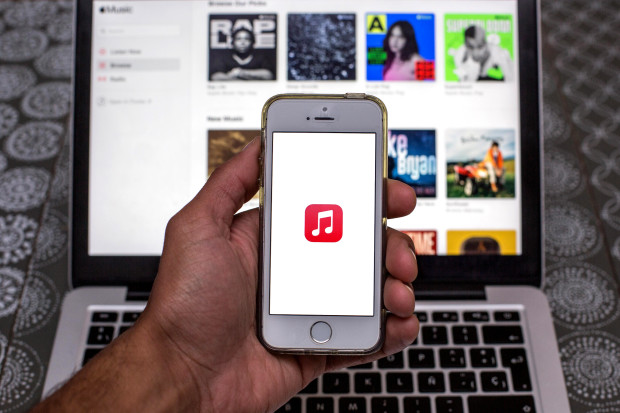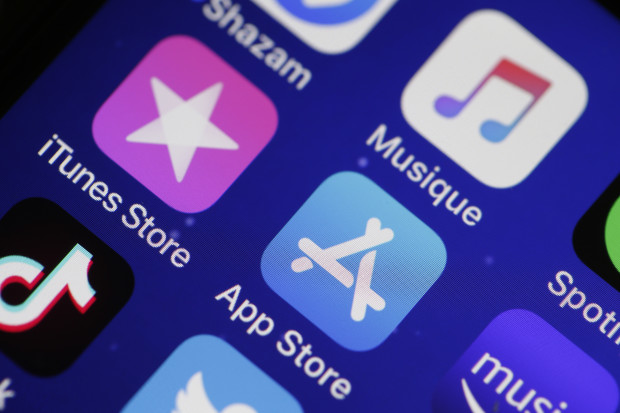
Those of us who recall ancient history remember a point in time when Apple (AAPL) -) was the king of music.
It was over 20 years ago that Apple released the iPod, the revolutionary portable and individual music player that fit in your pocket or arm band at the gym. Back then, this was the pinnacle of taste and culture.
DON'T MISS: Uber is developing a new service sports fans will love (it's delicious)
And with it came iTunes, the revolutionary music service that actually allowed users in the Apple ecosystem to buy and download their favorite tunes. Apple founder and CEO Steve Jobs emphatically believed people wanted to own their music. It was at the core of his business personality and ultimately, his success.
At its launch, the iTunes Music Store allowed customers to buy songs for $0.99 each.
"And all of it is $0.99 a song, with NO subscription cost, because people have told us over and over and over again, they don’t want to rent their music," he said in 2003. "Just to make that perfectly clear, music’s not like a video. Your favorite movie you might watch ten times in your life — your favorite song you’re going to listen to a thousand times in your life...They [customers] don’t want subscriptions."
Jobs also infamously said subscription services "treat you like a criminal," and called the idea outdated.
"People bought their music for as long as we can remember. We bought our music on LPs, we bought our music on cassettes, we bought our music on CDs. And we think people want to buy their music on the internet by buying downloads...They’re used to buying their music, and they’re used to getting a broad set of rights with it."
But that was then, and this is now.

Apple rights its musical ship
Of course, Apple has since changed its tune. It mostly retired iTunes (it's still available on some Windows devices and older versions of Mac OS) and replaced it with Apple Music in 2015. Customers could access their favorite library of songs and podcasts on the app, and, for the small (subscription!) fee of $10.99 per month, can stream millions of songs and audio ad-free.
Only issue is, Spotify (SPOT) -) came out seven years prior and kind of had this whole model iterated and figured out already.
For the same $10.99 monthly fee, users also get access to millions of streamable songs, podcasts and programs. The world's largest podcast, "The Joe Rogan Experience," is also exclusively located behind the confines of Spotify's sizable moat. As of June, Spotify has 515 million users. Apple Music has somewhere north of 88 million.
Part of what makes Spotify so special is its "Discover" feature, which leverages a complex algorithm to diagnose user taste and recommend new songs based on likes and behavior. It's "Discover Weekly," playlist, which is unique to every user and offers 30 new songs each week, has been highly successful. As has its new DJ program, which subtly adds new songs to an already-created playlist so users can passively discover new music while still enjoying their old favorites.
And finally, Apple Music will be offering a similar product.
It appears that Apple has quietly launched "Discovery Station," a radio station available on Apple Music that allows users to discover new music based on their taste and algorithm. Apple hasn't officially announced the product yet, but eagle-eyed users have noticed it up and running on Apple Music’s mobile, desktop, and web apps.
You can find it by navving over to your Apple Music app, hitting the "Listen Now," tab, and clicking on "Stations for You."
TheStreet has reached out to Apple for comment.







